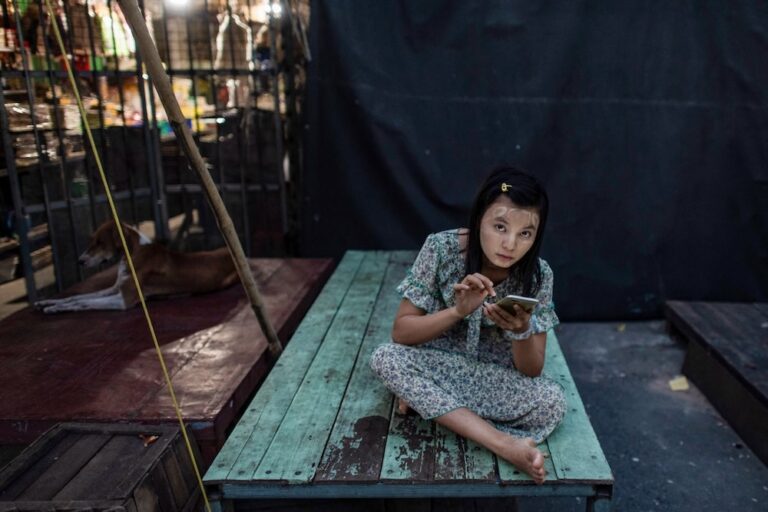(RSF/IFEX) – Reporters Without Borders and the Burma Media Association have voiced outrage at the arrests on 29 March 2006 of seven students from the University of Pegu, north of Rangoon, for writing and publishing a pro-democracy poem. Their arrests came five days after journalists U Thaung Sein and Ko Moe Htun were sentenced to […]
(RSF/IFEX) – Reporters Without Borders and the Burma Media Association have voiced outrage at the arrests on 29 March 2006 of seven students from the University of Pegu, north of Rangoon, for writing and publishing a pro-democracy poem. Their arrests came five days after journalists U Thaung Sein and Ko Moe Htun were sentenced to three years in prison for photographing and filming in the new capital of Pyinmana.
“The military authorities restrict freedom of expression by force,” the two organisations said. “Not only are journalists unable to work freely but young people are also being stripped of their rights. We call for the release of the students and journalists currently held in Burma.”
The names of the seven students are as follows (the first two are women): Hnin Wint Wint Soe, May Su Su Win, Ne Linn Kyaw, Thet Oo, Win Min Htut, Maung Maung Oo and Zeya Aung. The title of the poem they composed and circulated is “Daung Man,” which means the “Strength of the Fighting Peacock”, the symbol of the Burmese pro-democracy movement.
They were found in possession of copies of the poem when arrested. According to the Democratic Voice of Burma, an exile radio station, they were initially held at a Pegu police station. A lawyer said they were subsequently transferred to the city’s prison, but this was not confirmed by the police. The lawyer also said a government prosecutor was visiting them every day and interrogating them. Their families have not been allowed to see them.
Prior censorship and the imprisonment of journalists are the most serious problems which the Burmese press have to face. The country’s most famous journalist, U Win Tin, has been imprisoned in Rangoon since July 1989.


